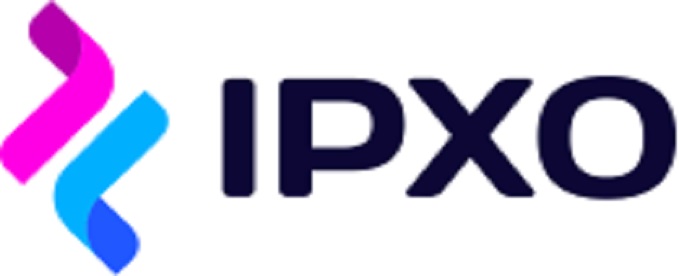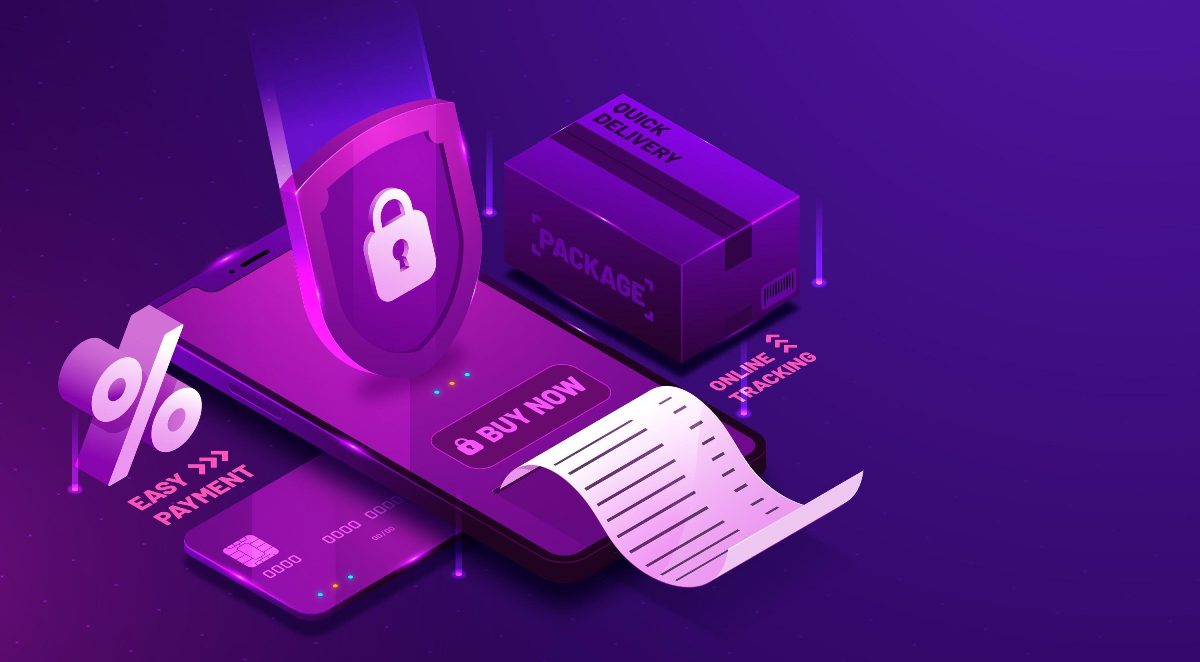Telecom
IPXO Launches Fully Automated Platform for IPv4 Address Leasing and Monetization

IPXO, an all-in-one IP address marketplace, has launched a new IP address management platform, which will enable companies to easily lease unused IP resources to businesses in need.

Consequently, by enabling “sleeping” IP assets to reenter the market, the platform will help alleviate the global IPv4 shortage problem, as well as present an opportunity to build new tools that would help unify the fragmented internet industry.
Since 2019, the pool of IPv4 resources has been completely exhausted.
The massive digitization, further exacerbated by the pandemic, has placed even more pressure on the already strained market, leading prices of the IPv4 address transfers to continue trending upward without a clear tipping point in sight.
This posed a need for an alternative market, which, according to Vincentas Grinius, CEO at IPXO, was one of the key factors driving the launch of the new IPXO platform.
“Having identified a gap in the industry, we wanted to present the network community with a reliable solution for SMEs and larger enterprises alike,” said Grinius.
“IPXO is working to enable IP monetization while connecting all Regional Internet Registries (RIRs), in turn providing more transparency and accountability in the industry.”
“Also, previously IP monetization required a lot of human resources. Thus one of the key points of focus while developing the platform was minimizing the effort needed from the IP lessors and IP lessees when listing and accessing the IPv4 resources.”
Increasing market accessibility
One of the major problems that IP resource businesses continue to face is poor market accessibility.
IPXO’s platform will address the issue by enabling businesses across the globe to interact, exchange resources and seek solutions to their IP needs in real-time.
“The platform will effectively solve market accessibility problems that the industry has grappled with for decades. This will go a long way to help startups and brick and mortar firms that are looking to digitize their operations, to gain easy access to IP resources at a relatively low cost,” Vincentas added. “Looking from a wider perspective, it will help bridge the global economy with the digital world more tightly.”
The innovative solution has already received positive feedback from some of its partners that had the opportunity to try out the platform during Beta-testing.
“We have been using IPXO’s solutions to obtain IP addresses quickly, in as little as a couple of minutes. This is invaluable, especially when, at times, we need to promptly change the IP addresses. Also, customer service is diligent and efficient when it comes to providing fast and clear solutions,” shared Pablo Hoffmann, director and founder of Zyte.
Having secured partnerships and long-term cooperation with several large enterprises, major ISPs, and RIR’s, IPXO has ambitious goals for the future.
One of them – to create the first Commercial RIR: a unified framework of existing RIRs adherent to their policy and compliance standards.
“There are still many gaps in the industry,” Grinius noted. “That’s why the ecosystem we are building is just the beginning of the roadmap we have for IPXO, as we aim to continue developing business-driven solutions that would help fill in the blanks,” he concluded.
Telecom
Mart Networks Rolls Out Tailored Cybersecurity Solution for Fintechs

Mart Networks, a leading cybersecurity distributor across Africa and the Middle East, has unveiled a specialized cybersecurity package tailored for fintech firms.

The solution, powered by Invinsense, Infopercept’s unified cybersecurity platform, aims to address the growing security needs of fintechs operating in highly regulated environments.
According to Moiz Maloo, Managing Director at Mart Networks, fintech companies face unique security challenges due to stringent regulatory requirements and increasing threats. “Most fintechs don’t have the luxury of multiple internal security teams or system integrators. With this focused offering, we’re providing an all-in-one platform with managed services built specifically for the fintech environment,” he said.
The offering integrates four key components: Invinsense XDR and Managed Detection & Response for real-time monitoring, Exposure Management for vulnerability detection, Security Compliance Management to support fintechs in meeting regulatory standards, and Cybersecurity Awareness Programs to empower teams against cyber threats.
Furthermore, the package includes deep application visibility, ensuring fintech-specific applications remain secure through Invinsense SIEM’s custom log ingestion capabilities. To reinforce protection, Infopercept’s engineering team will provide code-level fixes, patches, and infrastructure security enhancements.
With the rise of cloud-based fintech operations, the solution also incorporates full-stack cloud security, including API security, Cloud Infrastructure Entitlement Management (CIEM), and Application Security Posture Management (ASPM).
Mart Networks’ move underscores the growing importance of cybersecurity in Africa’s fintech sector, as financial services become increasingly digital and susceptible to evolving cyber threats.
Telecom
Equinix Expands Digital Footprint in Nigeria with Launch of LG2.3 Data Center

Equinix, Inc. the world’s digital infrastructure company™, has officially opened its latest data center expansion in Lagos. Called LG2.3, the facility will support Nigeria’s growing digital transformation efforts, providing state-of-the-art colocation and secure interconnection solutions which will empower businesses across the region.

It also signifies Equinix’s unwavering dedication to advancing Nigeria’s position in the global digital economy, reinforcing the company’s commitment to the region.
As part of the inauguration, Bruce Owen, President of EMEA at Equinix, along with other Equinix executives, led the ribbon-cutting ceremony at the newly expanded site. In addition to an official visit to the Governor of Lagos State, Equinix hosted an exclusive customer engagement event, bringing together key customers and partners from Nigeria’s business and technology sectors.
Attendees discussed shared successes and Equinix’s role in facilitating digital transformation, while also connecting directly with Bruce Owen for insights into how Equinix’s solutions drive innovation and business agility in the region.
Equinix executives also took part in a tree-planting ceremony, symbolising Equinix’s continued investment in sustainable initiatives across the globe and highlighting the company’s broader goal of reducing its carbon footprint while supporting greener practices across its operations worldwide.
Speaking about the expansion, Bruce Owen, President of EMEA at Equinix said “Nigeria is a crucial market for Equinix. Today’s opening is a clear demonstration of our continued commitments to invest and grow digital infrastructure that will benefit the many thousands of businesses in Nigeria and on the continent as a whole.
“I am deeply encouraged by the enthusiastic partnerships and innovations emerging from this dynamic region, which continue to inspire our commitment to Nigeria’s digital and sustainable future.”
Adding to this, Wole Abu, Managing Director of Equinix West Africa, highlighted the critical role of data centers in driving economic growth stating “Data centers continue to play a pivotal role in driving economic development in Nigeria, serving as critical infrastructure that supports digital transformation and economic growth.
“As governments and enterprises increasingly acknowledge their significance, global demand for data center capacity is poised to rise. While Africa’s demand for data solutions is still evolving compared to more mature markets, the continent is demonstrating strong potential for digital adoption and innovation.
“To meet this growing need, Equinix is actively advancing three major data center projects in Nigeria, with future expansion plans for Ghana, Côte d’Ivoire, and South Africa.”
Equinix remains steadfast in its mission to enable secure, scalable, and sustainable digital growth for economies across the world.
Telecom
African Women Hit Hardest as Mobile Internet Gender Gap Persists

African women remain among the most digitally excluded globally, with smartphone affordability and digital literacy among the key barriers. New data from the 2025 GSMA Mobile Gender Gap Report, launched recently, reveals a persistent global gender gap in mobile internet use across low- and middle-income countries (LMICs).

It further notes that literacy, digital skills, safety, and affordability of data also remain critical barriers. The report highlights that 885 million women across these regions still do not use mobile internet, with nearly 60% of them living in Sub-Saharan Africa and South Asia.
While mobile internet is the primary way women in LMICs access the internet, offering critical lifelines to health, education, and financial services, the pace of female adoption has stalled, leaving 235 million fewer women than men connected.
Claire Sibthorpe, head of digital inclusion at GSMA, highlighted that the gender gap had narrowed significantly between 2017 and 2020, but progress flatlined in recent years.
Although 2023 brought a slight improvement, restoring the gap to 15%, 2024 saw minimal change, with the gap settling at 14%.
The disparity is most severe in Sub-Saharan Africa, where women are 29% less likely than men to use mobile internet.
“It’s disheartening that progress in reducing the mobile internet gender gap has stalled. The digital divide is driven by deep-rooted socio-economic and cultural factors that disproportionately impact women,” said Sibthorpe.
GSMA projects that closing the gender gap by 2030 could add $1.3 trillion to GDP across LMICs and deliver $230 billion in revenue to the mobile industry.
The report, funded by the UK FCDO, Sida, and the Gates Foundation, stresses the urgent need for targeted investment and policy action to bridge the digital divide and ensure that no woman is left offline.
“The mobile internet gender gap is not going to close on its own. It is driven by deep-rooted social, economic, and cultural factors that disproportionately impact women,” said Sibthorpe.

 E-Financial2 days ago
E-Financial2 days agoAccess Holdings Sets Benchmark in Fraud Prevention With ₦193.5Bn Tech Investment

 E-Financial2 days ago
E-Financial2 days agoMTN’s Digital Lending Arm Disburses $592m Loans in Q1

 E-Financial2 days ago
E-Financial2 days agoAccess Bank, Deloitte Partner to Equip SMEs with Tools for Growth

 News2 days ago
News2 days agoSERAP Asks Ojulari, NNPC CEO to Account for Missing N500Bn or Face Legal Action

 E-Financial2 days ago
E-Financial2 days agoFG Verifies 2m Households for Cash Transfer

 E-Business2 days ago
E-Business2 days agoFG Launches Online Citizenship, Business Management Platform

 Telecom2 days ago
Telecom2 days agoEquinix Expands Digital Footprint in Nigeria with Launch of LG2.3 Data Center

 General News2 days ago
General News2 days agoNOTAP Urges South Eastern Entrepreneurs to Embrace Franchising as Business Model






















